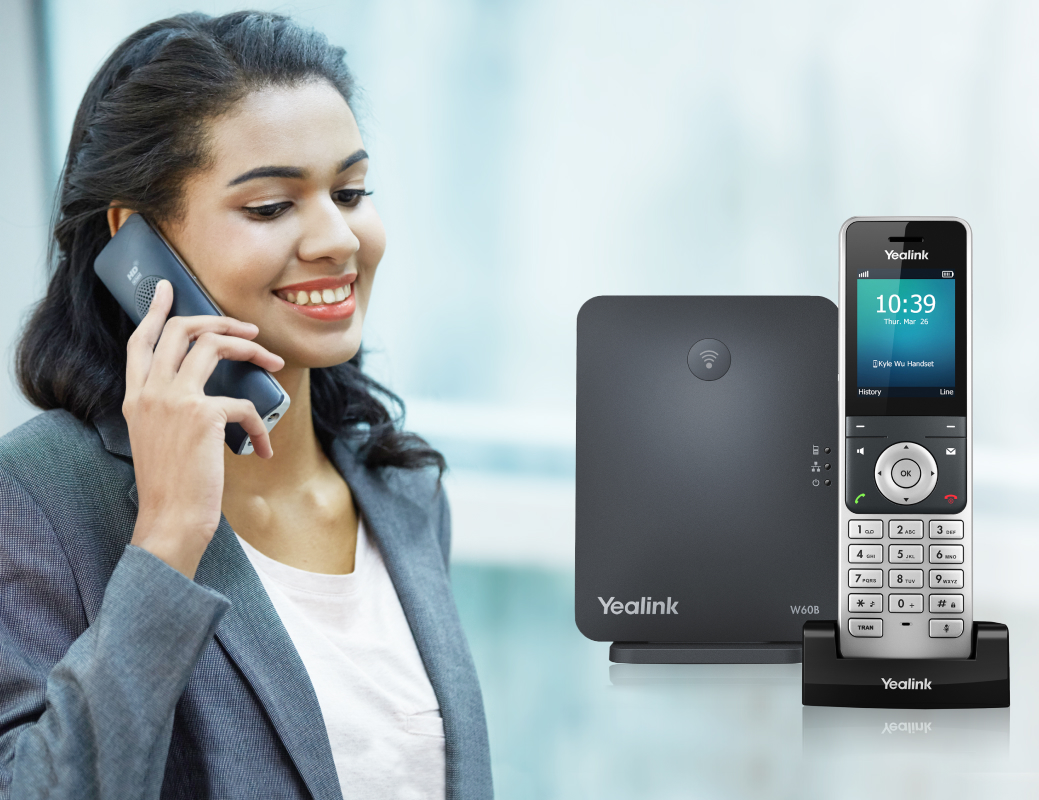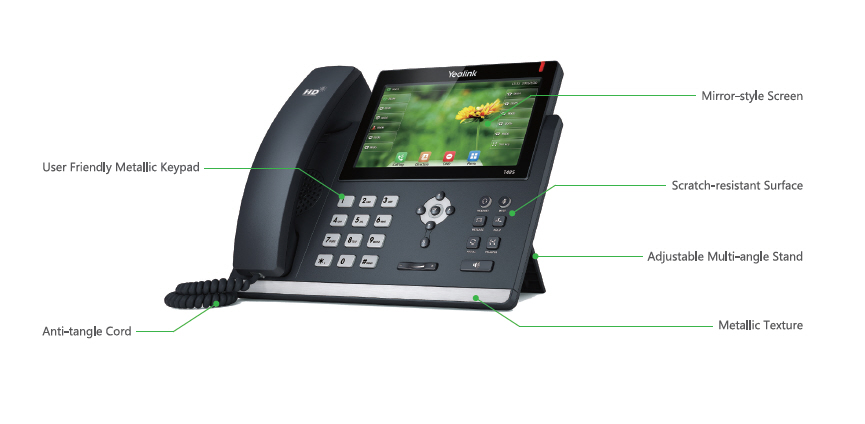In today's rapidly evolving business landscape, effective communication is paramount for success. Traditional phone systems are being overshadowed by advanced technologies that promise greater efficiency and flexibility. One such technology is Voice over Internet Protocol (VoIP), which has revolutionized the way businesses communicate. This article explores the future of business communication, highlighting why VoIP is here to stay.
Table of Contents
What is a VoIP Phone System?- 1.1 Definition of VoIP 1.2 How VoIP Works 1.3 Components of a VoIP Phone System
- 2.1 Historical Context 2.2 Adoption Rates in Businesses
- 3.1 Cost Efficiency 3.2 Scalability 3.3 Enhanced Features
- 4.1 Key Differences 4.2 Advantages of Switching to VoIP
- 5.1 Internet Speed Requirements for VoIP 5.2 Quality of Service (QoS) Considerations
- 6.1 Common Security Risks 6.2 Best Practices for Securing VoIP
- 7.1 Integration with Artificial Intelligence 7.2 Remote Work and Cloud-Based Solutions
- 8.1 Small Business Case Study 8.2 Enterprise-Level Case Study
- 9.1 Factors to Consider 9.2 Top Providers in the Market
FAQs about VoIP Phone Systems
- Frequently Asked Questions regarding VoIP
Conclusion: The Future Is Bright for VoIP
What is a VoIP Phone System?
Definition of VoIP
Voice over Internet Protocol, commonly referred to as VoIP, allows users to make voice calls using an internet connection rather than traditional analog phone lines.
How VoIP Works
VoIP converts voice signals into digital data packets and transmits them over the internet through a series of protocols designed for voice communication.
Components of a VoIP Phone System
A typical VoIP phone system includes:
- IP Phones or Softphones A reliable internet connection A router or switch A server or cloud service provider
The Rise of VoIP Phone Systems
Historical Context
VoIP technology emerged in the late 1990s, initially used by tech-savvy enthusiasts before gaining traction among businesses seeking cost-effective alternatives to traditional telephony.
Adoption Rates in Businesses
According to industry reports, more than half of all businesses globally have adopted some form of a Voice over Internet Protocol phone system by now.
Benefits of Using a VoIP Phone System
Cost Efficiency
One major advantage is substantial cost savings on long-distance calls, making it an attractive option for companies with global operations.
Scalability
VoIP systems can easily scale with your business needs; adding lines does not require extensive rewiring or infrastructure changes.
Enhanced Features
Features like voicemail-to-email, call forwarding, and video conferencing enhance productivity and collaboration within teams.
VoIP vs Traditional Phone Systems
Key Differences
Unlike traditional systems that rely on copper wires, VoIP operates over high-speed internet connections, allowing for richer functionalities at lower costs.
Advantages of Switching to VoIP
Businesses that switch often report improved clarity, better scalability options, and enhanced features compared to their legacy systems.
The Role of Internet in VoIP Communication
Internet Speed Requirements for VoIP
For optimal performance, a stable internet connection with sufficient bandwidth is essential; typically, around 100 kbps per concurrent call is recommended.
Quality of Service (QoS) Considerations
Implementing QoS protocols ensures that voice data packets are prioritized over other types of traffic on your network for uninterrupted service quality.
VoIP Security Challenges and Solutions
Common Security Risks
VoIPs face unique security challenges such as eavesdropping and denial-of-service attacks due to their reliance on an internet connection.
Best Practices for Securing VoIP
Utilizing encryption methods like Secure Real-Time Transport Protocol (SRTP) can help mitigate these risks while maintaining robust communication capabilities.
Future Trends in Business Communication with VoIP

Integration with Artificial Intelligence
AI technologies like chatbots are increasingly integrated into Voip phone systems, providing instant responses and improving customer experience without human intervention.
Remote Work and Cloud-Based Solutions
As remote work becomes commonplace, cloud-based Voip phone systems allow employees to stay connected from anywhere while reducing overhead costs associated with physical office spaces.
Case Studies: Successful Implementation of Voip
Small Business Case Study
A local retail store implemented a Voip phone system leading to reduced operational costs while enhancing customer service through improved call management features.
Enterprise-Level Case Study
A multinational corporation transitioned from traditional telephony to Voip, resulting in improved collaboration across various regions facilitated by unified communication tools.
Choosing the Right VoIp Phone System for Your Business
Factors to Consider
When selecting a VoIp phone system, consider scalability options, integration capabilities with existing software, customer support services offered by providers, and pricing structures tailored to your business needs.
Top Providers in the Market
Some leading providers include RingCentral, Nextiva, and Vonage; each offers unique features catering specifically to diverse business requirements.
FAQs about VoiP Phone Systems
1. What is the cost difference between traditional phones and VOiP?
Generally speaking, VOiP phone systems provide significant savings ranging from about 30% up to potentially even more than traditional landlines due largely because most VOiP services offer unlimited local calling at no extra charge!
2. Can I use my existing phones with VOiP?


3. How does VOiP affect emergency calls?
While VOiP allows you flexibility—it’s crucial always ensure proper configurations are made so that emergency services can locate users when needed—unlike conventional landlines where location details are automatically provided!
4. Is VOiP secure?
Like any online communications platform—security measures must be taken seriously! Employ encryption protocols plus strong passwords will go along way toward safeguarding sensitive conversations against eavesdropping attempts!
5. Can I keep my number if switching providers?
Absolutely! Most providers offer number portability ensuring minimal hassle transitioning between different carriers without needing change contact information widely distributed throughout clientele base!
6. What happens during power outages?
During power outages—you may lose access unless equipped backup battery solution exists enabling continuity even amidst unforeseen circumstances disrupting normal functionality!
Conclusion: The Future Is Bright for VOiP
As we delve deeper into the digital age, it's clear that the future holds immense potential for VOiP phone systems. With continued advancements in technology paving new avenues for enhanced communication experiences—businesses looking towards growth need not look further than adopting these innovative solutions today! Embracing this shift will not only improve operational efficiency but also position organizations favorably amidst competitive markets vying http://my-brilliant-blog-4352.mozellosite.com capture attention consumers’ increasingly demanding expectations! Ultimately—the future embraces change—and there’s no denying that “the future of business communication: why VOiP is here stay” remains bright indeed!